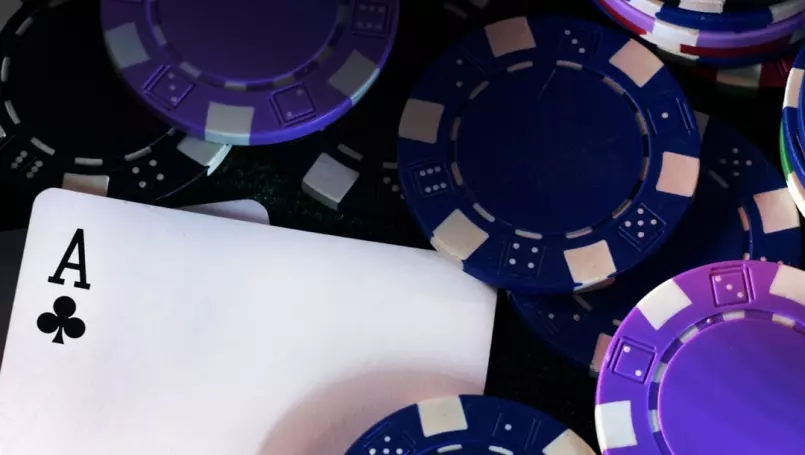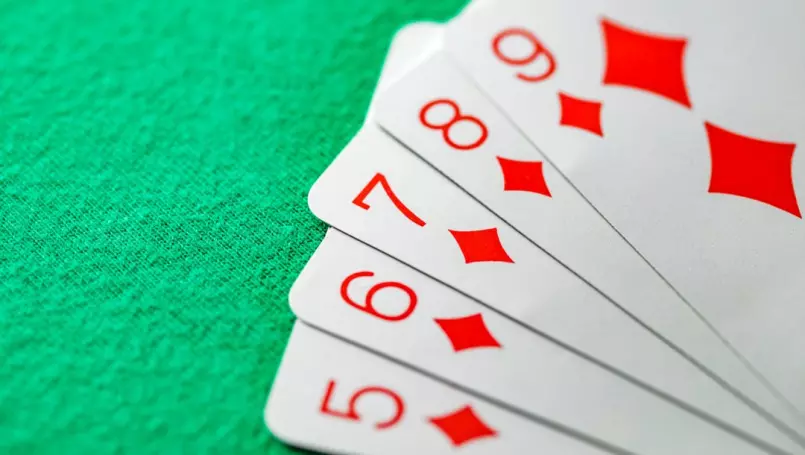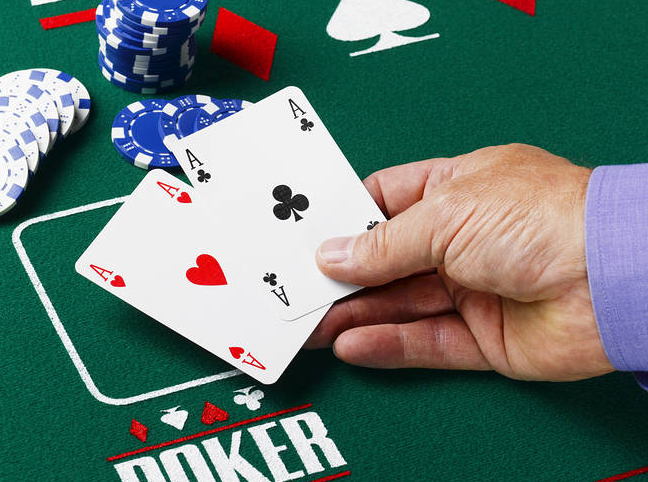Whether you’re engaged in online poker or prefer the traditional face-to-face format, you’ve likely encountered what seemed to be a highly promising hand, only to witness it unravel in disappointment. Indeed, there are specific poker hands that undoubtedly hold more weight in the hierarchy of poker hand rankings, irrespective of whether you’re participating in a tournament or a cash game. However, it might come as a surprise that certain hands fall into the category of being either overrated, overused, or both.
Discover more about these Texas Hold’em hands and gain insights on how to avoid succumbing to their allure.
1.Ace-King
Pause for a moment. Ace-king (A-K)? Isn’t this considered a formidable hand?
Certainly, it is, but the late poker pro Gavin Smith believed it was a hand prone to excessive play. In an interview with the SunSentinel featured in the article titled “The Common Overvaluation of Ace-King,” Smith recounted a pivotal moment from the World Poker Tour Championship at the Bellagio in 2009 where the A-K combination didn’t yield the desired results.
“I think it’s a frequently overplayed hand,” Smith expressed. “Had either of them re-raised me before the flop, I would’ve folded it. It wasn’t as if I was going recklessly all-in with the hand. I simply chose to handle it that way in that specific situation. I believe players could enhance their overall expected value with A-K if they were more cautious in their approach.”
It’s regrettable that the hand didn’t work out as planned for Smith, as it could have been a captivating poker tale of an underdog’s triumph.
Ultimately, whether suited or unsuited, A-K remains one of the strongest starting hands in Texas Hold’em. Nevertheless, players must exercise restraint and not overcommit. Initiate aggressive play early to maximize its potential, but be prepared to fold if the situation fails to improve after the flop.
2.Ace and a Weak Companion Card
Players frequently feel tempted to engage with an A-X hand, often referred to as “rag aces.” However, it is crucial for players to accurately assess the strength of their accompanying card, a step sometimes overlooked due to the excitement of possessing one of the most valuable cards in their cash game or tournament hand. Once they gauge the actual value of the second card, they can make informed decisions on how to proceed.

In “The Science Of Weak Ax Hands | Poker Quick Plays” video from The Poker Bank, they categorize any combination from A-2 to A-8 as a weak A-X hand, irrespective of whether they are suited or unsuited. Conversely, A-A (the best starting hand in poker), A-K (discussed previously), A-Q, A-J, A-10, and A-9 are considered strong A-X hands.
The video also sheds light on several reasons why players frequently overestimate and overplay weak A-X hands. Firstly, many players assume a high likelihood of hitting a significant hand on the flop. However, a thorough examination of statistics using the analysis tool Flopzilla reveals that the odds of this occurrence are less than +2,757. More realistically, the chances of hitting a top pair are only +513, which is still far from being a reliable play. The situation improves when A-X is suited, as it introduces the potential for flush draws.
The video further explains that weak A-X hands miss the mark approximately two-thirds of the time, and even when they do connect, players often misplay them. Various scenarios are discussed, but the video ultimately advises that if you contemplate playing a weak A-X hand, adopting a preflop aggressive strategy is the preferred approach, as postflop outcomes tend not to improve significantly.
In summary, it’s crucial to recognize that playing a weak A-X hand carries inherent risks, especially as the game progresses. You might encounter hands like A-K, A-Q, A-J, or even lower pairs that can outmatch your weak A-X hand. This risk is amplified when your A-X hand is unsuited, as it reduces the chance of forming a flush with your starting hand.
3.King-Jack Offsuit
Nathan Williams, also known as BlackRain79 in the online poker world, is a renowned poker content creator, author, instructor, and micro-stakes poker player. On his poker blog, a contributing author discusses four poker hands that are better off being folded in the article titled “4 Overrated Poker Hands You Should Fold.” The four hands in question are jack-9 suited, ace-10 offsuit, pocket 2s, and king-jack offsuit.
The author emphasizes that the primary issues with the king-jack offsuit hand lie in its offsuit nature, which means it lacks the potential for a flush, and its inferiority compared to connector hands. Consequently, it frequently falls short against statistically stronger hands like ace-king, ace-jack, and king-queen.
This hand is somewhat deceptive, as it’s not terrible but also not exceptional. Its offsuit nature further limits its possibilities. As the author advises, while it may offer some postflop opportunities, if faced with a 3-bet, the safest course of action is to fold.
4.Suited Connectors

Suited connectors present a dual challenge. On one hand, they hold the potential to deliver winning straights or flushes, but their fate hinges heavily on the outcome of the flop, which poses a significant dilemma.
Most individuals find themselves falling short of their flop expectations, yet they cling to the hope that the final two community cards will magically salvage their situation. They persist with these hands, fixated on the notion that a straight or flush is within reach, despite the fact that the odds of achieving such outcomes are exceedingly slim.
When the flop fails to favor them, it’s prudent to fold if things appear unfavorable. Suited connectors possess some merit, but they should not automatically be pursued if the flop does not align with your expectations.
5.Medium or Low-Value Pairs
Having a pair of aces, kings, or queens is a different ballgame altogether, but when you venture into the realm of medium-value pairs (ranging from a pair of 10s down to a pair of 6s) and low-value pairs (ranging from a pair of 5s to a pair of 2s), the decision to play these hands becomes increasingly dubious.
Much like the fixation on suited connectors, many individuals become fixated on the possibility of landing three or four of a kind, a full house, or two pairs. Some less experienced players persist with a pair of 10s until the game’s conclusion, oblivious to the rapid decline in their hand’s value.
If you find yourself holding medium-value pairs, it might be worthwhile to observe the flop’s outcome. However, with low-value pairs, it’s often prudent to fold, particularly in the presence of a raise. Nevertheless, if others are calling, it may be wise to wait and assess the flop before making a final decision to fold.


